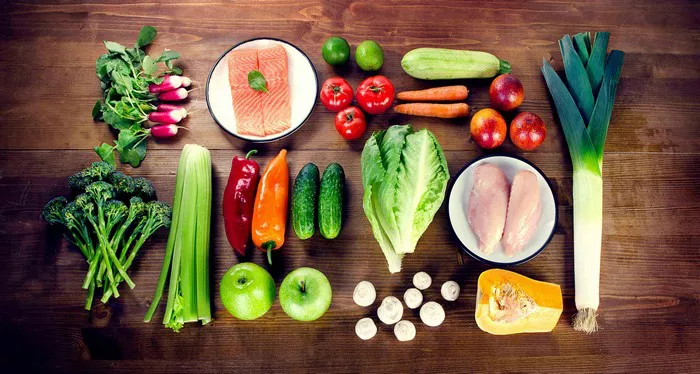Losing weight is a goal that many people aspire to achieve, but the path to a healthier weight should always prioritize your well-being. Crash diets and extreme measures may offer quick results, but they often come at the expense of your health. In this article, we will explore the best healthy ways to lose weight, focusing on sustainable methods that promote long-term success.
1. Mindful Eating:
One of the cornerstones of healthy weight loss is mindful eating. This practice involves being fully present during meals, savoring each bite, and paying attention to hunger and fullness cues. Here are some key aspects of mindful eating:
a. Portion Control: Pay attention to portion sizes to avoid overeating. Use smaller plates, and be mindful of portion sizes when dining out.
b. Slow Eating: Eating slowly allows your body to register fullness, reducing the likelihood of overindulging.
c. Balanced Diet: Focus on a balanced diet that includes a variety of whole foods, such as fruits, vegetables, lean proteins, whole grains, and healthy fats.
2. Regular Exercise:
Incorporating regular physical activity into your routine is essential for healthy weight loss. Aim for at least 150 minutes of moderate-intensity aerobic exercise or 75 minutes of vigorous-intensity exercise per week. Here are some exercise options to consider:
a. Cardiovascular Exercise: Activities like brisk walking, jogging, cycling, and swimming can help burn calories and improve cardiovascular health.
b. Strength Training: Building lean muscle through strength training not only aids in weight loss but also boosts metabolism.
c. Flexibility and Balance: Yoga and Pilates can enhance flexibility, balance, and overall well-being.
3. Hydration:
Proper hydration is often overlooked but plays a crucial role in weight loss. Drinking enough water helps control appetite and supports various bodily functions. Aim to consume at least eight 8-ounce glasses (about 2 liters) of water daily.
4. Sleep and Stress Management:
Inadequate sleep and chronic stress can hinder weight loss efforts. Ensure you get 7-9 hours of quality sleep per night and practice stress-reduction techniques like meditation, deep breathing, or mindfulness.
5. Setting Realistic Goals:
Setting achievable and realistic weight loss goals is crucial. Aim for a gradual and steady rate of weight loss, typically around 1-2 pounds per week. Rapid weight loss can be unsustainable and may lead to muscle loss and nutritional deficiencies.
6. Professional Guidance:
Consulting with a registered dietitian, nutritionist, or healthcare provider can provide personalized guidance and ensure that your weight loss plan is safe and suitable for your specific needs.
7. Tracking Progress:
Keep a journal to track your food intake, exercise, and progress. Monitoring your journey can help you identify areas for improvement and celebrate your successes.
Conclusion:
The best healthy way to lose weight is a holistic approach that encompasses mindful eating, regular exercise, proper hydration, adequate sleep, stress management, and realistic goal-setting. Remember that weight loss is a journey, and sustainable results are achieved through gradual, healthy lifestyle changes.
FAQs about losing weight:
1. Q: How can I lose weight safely and effectively?
A: To lose weight safely and effectively, focus on a balanced diet, regular exercise, proper hydration, and getting enough sleep. Avoid crash diets and seek professional guidance if needed.
2. Q: What is a healthy rate of weight loss?
A: A safe and sustainable rate of weight loss is typically 1-2 pounds per week. Rapid weight loss can be detrimental to your health.
3. Q: Are there specific diets that work best for weight loss?
A: The best diet for weight loss is one that you can maintain long-term and that meets your nutritional needs. Options include low-carb, Mediterranean, and balanced diets.
4. Q: Can I lose weight without exercising?
A: While you can lose weight through diet alone, combining a balanced diet with regular exercise is often more effective for long-term results and overall health.
5. Q: What are some healthy snacks for weight loss?
A: Healthy snacks for weight loss include fruits, vegetables, nuts, yogurt, and whole-grain crackers with hummus.
6. Q: How can I overcome weight loss plateaus?
A: To break through a weight loss plateau, try varying your exercise routine, adjusting your calorie intake, and focusing on whole, unprocessed foods.
7. Q: Is it okay to skip meals to lose weight?
A: Skipping meals is not recommended. It can slow down your metabolism and lead to overeating later in the day. Eating regular, balanced meals is key.
8. Q: Can I lose weight if I have a slow metabolism?
A: Yes, you can still lose weight with a slow metabolism. Focus on portion control, exercise, and building lean muscle mass to boost metabolism.
9. Q: Are weight loss supplements safe and effective?
A: Weight loss supplements can have varying levels of effectiveness and safety. Consult with a healthcare professional before using any supplements.
10. Q: How can I maintain my weight after losing it?
A: To maintain weight loss, continue to follow a balanced diet, exercise regularly, monitor your progress, and be mindful of your eating habits.

























